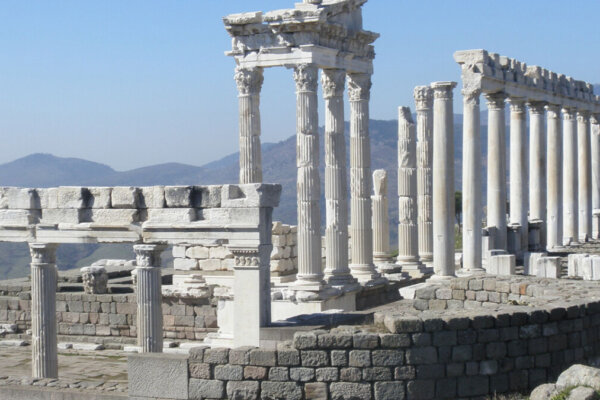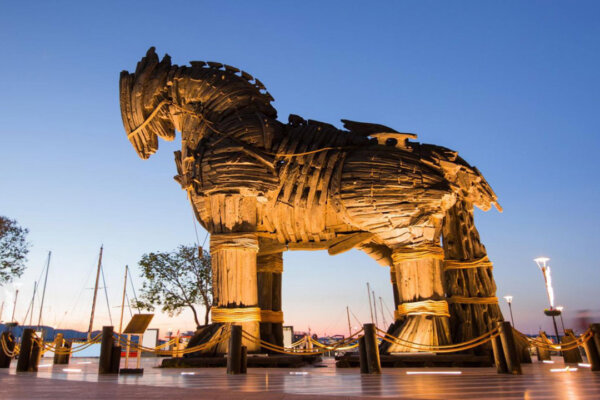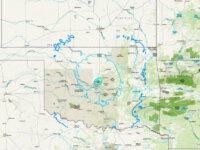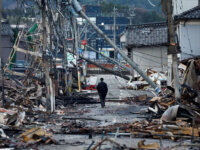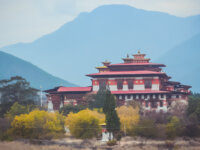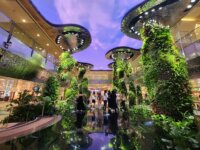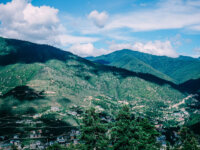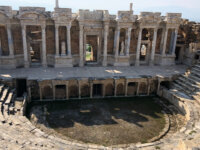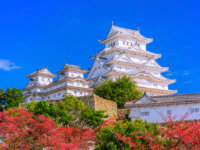Embarking on a journey towards environmental sustainability, Bhutan is considered a beacon of ecological responsibility. The country’s constitution commits to maintaining at least 60% forest cover, making Bhutan the only carbon negative nation in the world.
In addition, Bhutan leads various initiatives that promote a harmonious relationship between nature and development.
Explore notable sustainable projects that contribute to the country’s philosophy of Gross National Happiness.
1. The Million Trees Project.
Launched in 2021, the Million Trees Project aims to transform abandoned lands by planting over a million high-value crops. Local farmers are receiving cherry, pear, walnut, and peach trees, promoting increased income and biodiversity.
This effort not only improves livelihoods but also serves as a buffer against the impacts of climate change.
2. Dungsam Community Seed Bank.
To address the issue of declining traditional crop seeds, the Dungsam Community Seed Bank preserves and promotes various local grains. This initiative safeguards the cultural heritage of farming practices and ensures that farmers have timely access to indigenous seeds such as wheat, barley, oats, etc.
3. Electric Vehicle (EV) Project.
Bhutan’s sustainable low-emission urban transportation system prioritizes electric vehicles, driving the transition towards a low-carbon future. With 21 charging stations strategically located throughout the country, this project aligns with Bhutan’s commitment to economic and environmental benefits through widespread adoption of electric cars.
4. Enhancing sustainability and climate resilience.
According to UNDP, this project aims to minimize the impact of climate change on rural livelihoods and biodiverse forest landscapes. The goal is to ensure effective forest management that can withstand climate challenges, safeguard ecosystem services, and promote adaptation to climate change.
5. Bhutan’s Green Energy Development Project.
This project encompasses clean energy commerce in the region and a focus on renewable energy access, including the development of the Dagachhu hydroelectric plant and rural electrification through gasification.
Its aim is to provide electricity to households and facilities by expanding the power grid and utilizing off-grid solar energy sources, emphasizing sustainable energy solutions.
6. Ecotourism and Biodiversity Project.
Thanks to the support of UNDP and funding from the Global Environment Facility (GEF), this 5-year project has transformed Bhutan into a model ecotourism destination.
By integrating biodiversity conservation into tourism development, it has created a sustainable source of income and livelihoods while minimizing negative impacts on cultural and social heritage.
7. The Green Bhutan Project.
Launched in 2016, the Green Bhutan Project aims to enhance the greenery of towns through flower and tree planting. It promotes a culture of gardening among the locals and emphasizes the importance of improving aesthetics and safety in the landscape.
8. Bhutan’s Clean Project.
Established in 2014 with the patronage of the royal family, the Clean Bhutan Project aims to promote sustainable consumption habits. By collaborating with the government and local communities, this organization effectively manages waste and encourages cleanliness and beauty throughout the country.
9. Bhutan: The Land of Zero Waste.
As part of its leading waste management program, Zero Waste Bhutan has set a goal to achieve zero waste by 2030.
Through source separation and efficient waste management, this initiative aims to effectively recover materials and reduce landfill waste to below 20%.
10. Living Landscape: Ensuring High Conservation Value (HCV) in Southwestern Bhutan.
The goal of this WWF project is to achieve long-term conservation objectives for biodiversity and ecosystem services. Focusing on contributing to the sustainable development of Bhutan, the project aims to ensure High Conservation Values (HCVs) in the Southwest region.
By emphasizing sustainable management of natural resources beyond protected areas and wildlife corridors, this initiative covers nine districts/dzongkhags including Thimphu, Paro, Haa, Samtse, Chukha, Dagana, Tsirang, Sarpang, and Zhemgang.
11. Community-based forest resource management.
Implemented in 10 districts, this WWF project focuses on community forest management groups and non-timber forest products outside of conservation areas to enhance Community-Based Forest Resource Management (CBFRM).
Operating in Recycleiyangtse, Ashigang, Mongar, Pemagatshel, Samdrup Jongkhar, Sarpang, Zhemgang, Trongsa, Dagana, and Samtse, the project aims to actively involve these groups in sustainable forest resource management. The ultimate goal is to improve livelihoods and create employment opportunities.
12. Bhutan Project for Life.
Bhutan’s Life is a groundbreaking initiative sponsored by WWF, aimed at ensuring sustainable financial support for the permanent conservation and biodiversity corridors of the country.
The project envisions a scenario where the Bhutanese government takes full responsibility for these costs without any assistance from foreign countries.
This long-term and strategic solution aims to strike a balance between economic development needs and the imperative to protect natural resources, providing motivation for both urban and rural areas.
13. Bhutan’s Biological Conservation Complex.
The Bhutan Biodiversity Conservation Complex (B2C2) encompasses the entire conservation landscape, including all protected areas, buffer zones, and connecting wildlife corridors.
Bhutan takes pride in its 5 national parks, 4 wildlife sanctuaries, 1 nature reserve, and 9 biological corridors, covering a vast area of nearly 20,000 km2, which accounts for 51.32% of the country’s total land area.
This WWF project plays a crucial role in ensuring the preservation and connectivity of Bhutan’s rich biodiversity.
Conclusion section.
Bhutan’s commitment to sustainability goes beyond mere words, with tangible projects driving towards a greener and more harmonious future. Each initiative plays a crucial role in bridging economic development with environmental protection, ensuring that Bhutan remains a global leader in ecological management. Explore these projects and witness Bhutan’s journey towards becoming a truly sustainable and happy nation.



